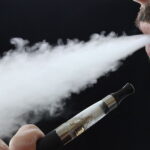The quest for healthy and beautiful hair, skin, and nails often leads individuals to consider various supplements to support their efforts. One such popular supplement is biotin, a vitamin B complex that plays a significant role in maintaining the health of hair, skin, and nails. But does biotin cause acne? This question has become a topic of debate, and this article seeks to explore the relationship between biotin and acne, as well as address concerns about weight gain and the potential risks of taking too much biotin. Looking for effective acne treatment? Visit our website to learn more details.
Biotin and Its Benefits
Biotin, also known as vitamin H or B7, is a water-soluble vitamin essential for the body’s metabolism, converting food into energy and maintaining a healthy nervous system. It is crucial for the growth and repair of hair, skin, and nails, and its deficiency can lead to hair loss, brittle nails, and dry, scaly skin. Many people take biotin supplements to enhance their hair, skin, and nails, while others use them to support pregnancy and breastfeeding, as biotin requirements increase during these times.
Why Does Biotin Cause Acne?
Although biotin is widely known for its health benefits, some individuals experience breakouts when taking this supplement. The link between biotin and acne is poorly understood, and scientific research on the topic is limited. However, there are a few theories on why biotin may cause acne.
One hypothesis is that an excess of biotin in the body may lead to an imbalance in other B vitamins, particularly vitamin B5, also known as pantothenic acid. Vitamin B5 is essential for skin health; a deficiency can cause acne. If biotin competes with vitamin B5 for absorption in the body, it may lead to a relative lack of vitamin B5 and trigger acne breakouts.
Another possible explanation is that biotin supplementation can increase sebum production, an oil secreted by the skin’s sebaceous glands. Sebum is a natural skin lubricant, but it can clog pores and lead to acne when overproduced. Although biotin’s role in sebum production is not well established, the association between biotin and acne cannot be ruled out.
Does Biotin Cause Acne or Weight Gain?
While acne is a potential side effect of biotin supplementation for some individuals, there is no concrete evidence to suggest that biotin causes weight gain. Biotin plays a role in metabolism, but its impact on body weight is unclear. In fact, biotin deficiency has been linked to weight loss due to impaired nutrient absorption.
It’s essential to note that the relationship between biotin and weight gain needs to be better researched. Individual experiences with biotin supplementation can vary, and factors such as diet, exercise, and overall health can impact weight.
Does Too Much Biotin Cause Acne?
There is limited research on the effects of excessive biotin intake and acne. While some individuals may experience breakouts after taking high doses of biotin, this may not be the case for everyone. It’s crucial to consult a healthcare professional before starting any new supplement. They can help determine the appropriate dosage and ensure it does not interfere with other medications or supplements.
Safety and Precautions
Although biotin is generally considered safe and well-tolerated, it’s essential to approach supplementation with caution. The Food and Nutrition Board (FNB) of the Institute of Medicine has not established an upper limit for biotin intake, as there is not enough evidence to suggest that high doses of biotin are toxic or harmful. Still, the FNB recommends an adequate daily intake (AI) of biotin based on age and sex, with a general recommendation of 30 micrograms per day for adults. It is essential to keep in mind that individual needs may vary, and it is always best to consult a healthcare professional for personalized guidance.
Biotin is naturally found in various food sources, including eggs, dairy products, nuts, and legumes. By consuming a balanced diet, most people can meet their daily biotin requirements without the need for supplementation. If you are concerned about acne or other potential side effects, focusing on dietary sources of biotin may be a safer option.
Consider taking a balanced B-complex supplement to minimize the risk of acne breakouts while taking biotin supplements. This can help ensure that other B vitamins, like vitamin B5, are not depleted in the process. Maintaining a consistent skincare routine, staying hydrated, and managing stress can also contribute to healthier skin.
Strategies for Preventing Acne Breakouts When Taking Biotin
For those who choose to take biotin supplements to improve hair, skin, and nail health, it is important to have a plan in place to minimize the risk of acne breakouts. The following strategies can help you reap the benefits of biotin while keeping your skin clear and healthy:
- Balance B Vitamins: One theory behind biotin-induced acne is the competition between biotin and other B vitamins for absorption, such as vitamin B5. Consider taking a balanced B-complex supplement instead of pure biotin to avoid this potential issue. This will ensure you receive adequate amounts of all essential B vitamins without causing imbalance.
- Start with a Lower Dose: When beginning biotin supplementation, consider starting with a lower dose to gauge your body’s response. Gradually increase the dosage if necessary, but consult your healthcare professional for personalized guidance.
- Monitor Your Skin: Keep a close eye on your skin’s condition while taking biotin. If you notice any changes or increased breakouts, adjust your supplementation accordingly or consult with a healthcare professional for further advice.
- Maintain a Consistent Skincare Routine: A well-rounded skincare routine is essential for maintaining healthy skin. Cleanse, tone, and moisturize daily, and be sure to exfoliate regularly to remove dead skin cells and unclog pores. Choose products suitable for your skin type, and consider incorporating acne-fighting ingredients like salicylic acid or benzoyl peroxide if you are prone to breakouts.
- Prioritize a Healthy Lifestyle: A healthy diet, regular exercise, and proper sleep hygiene can all contribute to healthy skin. Focus on consuming a diet rich in whole foods, antioxidants, and essential fatty acids to support overall skin health. In addition, manage stress levels through mindfulness practices like meditation or yoga, as stress can significantly contribute to acne breakouts.
Conclusion
The relationship between biotin and acne is complex and not yet fully understood. While biotin supplementation may cause acne in some individuals, others may not experience any negative side effects. There is currently no evidence to suggest that biotin causes weight gain. If you are considering biotin supplementation, it is essential to talk to a healthcare professional to determine the appropriate dosage and assess any potential risks. By monitoring your body’s response and making necessary adjustments, you can optimize your hair, skin, and nail health while minimizing the risk of acne breakouts.





